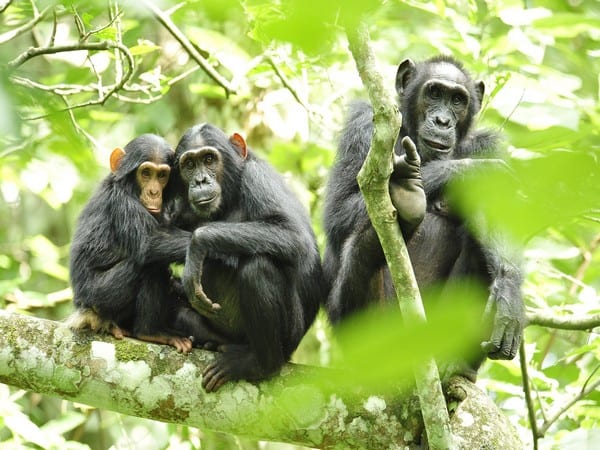Washington: Chimpanzees may adapt to human developed habitats better than their natural one. However, researchers emphasized that their survival is still threatened.
Researchers made their discoveries from hidden cameras during an eight-month study in the African country, according to the study published in the Journal of Plos One.
Although chimpanzees living in fragmented habitats, cross roads to move from one area to another and may approach human settlements. However, any further road widening, tarmacking or expansion and urbanisation could significantly affect chimpanzees distribution and abundance.
The research found that chimpanzees do not avoid areas frequented by people, possibly due to human tolerance and
low levels of hunting in the area, but unfortunately, they did not visit areas humans use at midday when human activity was more prevalent.
Around settlements, farmers grow fruits that attract chimpanzees despite the risks of encounter with people. The cameras captured images of chimpanzees eating domesticated fruits like mangos and pineapples that were cultivated close to human settlements.
Dr Tatyana Humle, one of the researchers said, “If we want to secure their long-term survival, it is crucial that successful protection measures should benefit people and chimpanzees alike. Conservation actions should focus on education and helping farmers to implement alternative agricultural methods to slash and burn farming and environmentally-friendly revenue-generating activities to ensure coexistence between the two species.’
In a landscape heavily impacted by subsistence agriculture, with many swamps and minimal forest, the researchers found that chimpanzees can survive if habitat loss is gradual, key wild resources such as the native oil palm are abundant and if people are tolerant of their presence.
However, chimpanzees in such landscapes tend to avoid roads, including untarmacked secondary roads and prefer to range in close proximity to the swamps.
[source_without_link]ANI[/source_without_link]

